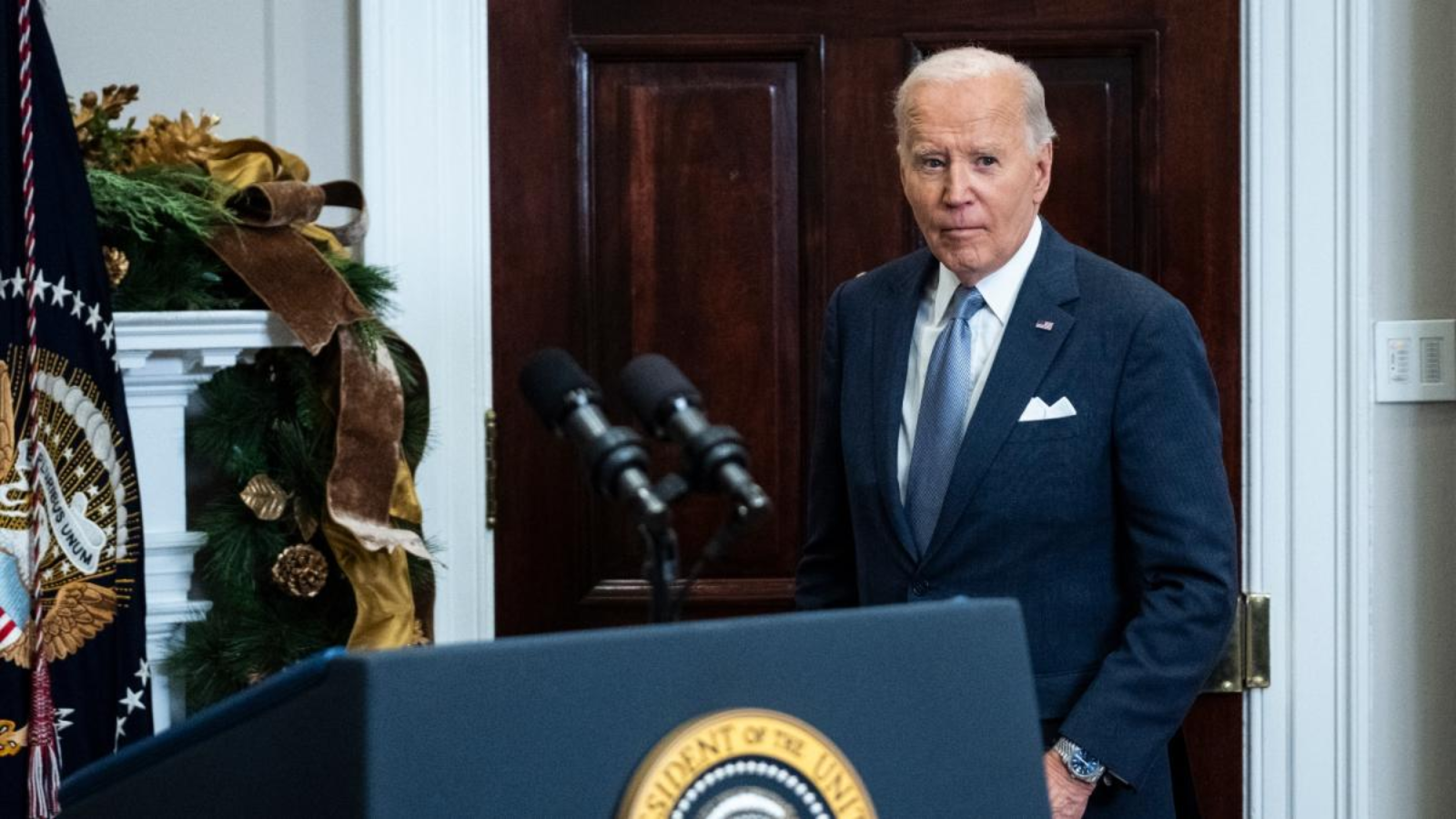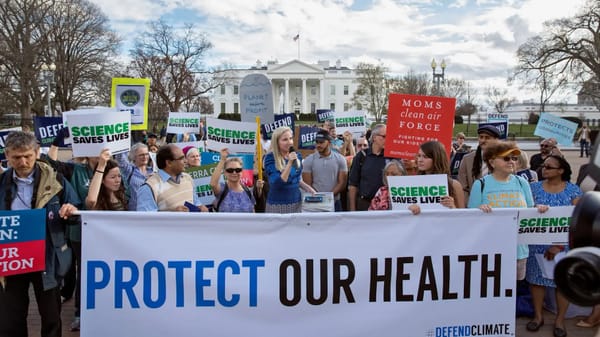Biden’s Final Push to End Public Financing for Oil and Gas Projects Abroad
With only weeks remaining in his presidency, President Joe Biden is making a last-ditch effort to cement his climate legacy by curtailing international financing for oil and gas projects.

With only weeks remaining in his presidency, President Joe Biden is making a last-ditch effort to cement his climate legacy by curtailing international financing for oil and gas projects. This ambitious move, focused on halting export credit support for fossil fuel infrastructure, could dramatically reshape the global energy landscape and further isolate coal, oil, and gas from public funding.
The administration is working within the Organization for Economic Cooperation and Development (OECD), an alliance of 38 wealthy nations, to forge an agreement that would effectively bar export credit agencies from supporting new fossil fuel ventures. Critics argue that without such restrictions, these agencies, which provide billions in funding to risky infrastructure projects, will continue to enable oil and gas expansion, undermining global climate goals.
A High-Stakes Negotiation
Export credit agencies (ECAs) are little-known but powerful players in global finance. They fund major infrastructure projects, often in exchange for contracts that benefit domestic industries. For instance, a German ECA might finance an oil pipeline abroad in exchange for a commitment to use German steel. Over the years, these agencies have become some of the largest public financiers of energy projects, eclipsing multilateral institutions like the World Bank.
The proposed OECD agreement would mirror past deals, such as the 2015 pact to end ECA financing for coal projects, which former President Barack Obama championed. That effort effectively stopped OECD countries from funding coal plants, reducing coal finance by $4 billion annually. Biden now hopes to expand this precedent to include oil and gas—a more challenging task, given the broader role these fuels play in global energy markets.

Resistance and Momentum
While some nations, including the U.K. and Canada, have already ceased most oil and gas export credits, others remain hesitant. South Korea, for example, has resisted the agreement due to its reliance on oil and gas-related industries, such as shipbuilding. Despite these holdouts, recent negotiations have shown progress, with member states scheduling additional overtime sessions—a signal that a breakthrough could be imminent.
“The fact that the OECD would have a unified position on this, which the U.S. would join, is amazing messaging,” said Stacy Swann, a former climate council member for the U.S. Export-Import Bank (EXIM). However, Swann cautioned that private banks and non-OECD countries could step in to fill the funding gap, diluting the agreement's impact.
Biden’s Climate Legacy at Stake
Biden’s push for this deal is as much about optics as outcomes. By aligning the U.S. with European nations leading the charge on fossil fuel finance reform, he aims to reinforce his administration’s commitment to global climate action. This move also seeks to counter criticism of EXIM, the U.S. export credit agency, which has continued financing fossil fuel projects despite Biden’s 2021 executive order directing federal agencies to limit international support for fossil fuels.
One particularly controversial EXIM project was a $500 million oil-drilling expansion in Bahrain, approved under Biden’s watch. The decision sparked resignations from two members of EXIM’s climate advisory council and drew scrutiny over whether EXIM’s charter truly mandates neutrality across industries, as its leaders claim.
“There’s a lot of gray area in EXIM’s charter,” said Swann. “It’s not as restrictive as they make it seem.”
Global Implications
The International Energy Agency (IEA) has repeatedly emphasized that limiting global temperature rise to 1.5 degrees Celsius requires halting new investments in coal, oil, and gas. While an OECD agreement wouldn’t eliminate these projects entirely, it could make them more difficult to finance, particularly in developing countries where private investment is often scarce.
“There are still avenues for fossil fuel projects to proceed, but removing export credit agency funding would make it significantly harder,” said Kate DeAngelis, deputy director of international finance policy at Friends of the Earth. “It’s not a death knell, but it’s a serious obstacle.”
The deal could also redirect ECA resources toward renewable energy projects, creating opportunities for cleaner technologies to scale more rapidly. Some ECAs, such as the U.K.’s, have already shifted focus, even financing the decommissioning of fossil fuel infrastructure.
Challenges Ahead
Despite Biden’s efforts, the agreement faces several hurdles. In addition to resistance from key OECD members, there is the looming specter of the next U.S. administration. While former President Donald Trump allowed the coal financing restrictions to stand during his term, his administration showed no interest in expanding such measures. Should Trump or a similarly fossil-fuel-friendly candidate return to the White House, enforcement of the new agreement could falter.
“There’s no guarantee the next administration will uphold this,” said DeAngelis. “But getting it signed now makes it much harder to unravel.”
The Biden administration’s rush to finalize the deal underscores the urgency of its climate agenda, particularly as global fossil fuel consumption shows little sign of abating. While oil and gas projects continue to move forward worldwide, an OECD agreement could at least slow their proliferation, especially in regions dependent on public financing.
A Pivotal Moment
As negotiations enter their final stages, the stakes for Biden’s climate legacy—and the global fight against climate change—could not be higher. While far from a panacea, an OECD deal would send a strong signal that the era of public financing for fossil fuels is drawing to a close. For Biden, it’s a chance to leave a lasting mark on international climate policy, even as his presidency winds down.
“The clock is ticking,” DeAngelis said. “This agreement could be one of the most significant steps the U.S. takes to curb fossil fuel financing. But time is running out.”
At Occupied Report, we are committed to exposing the rise of authoritarianism and its threat to democracy. In a time when disinformation spreads like wildfire and democratic institutions face relentless attacks, we need your support to keep the fight alive.
Investigative journalism is our weapon against authoritarian ideologies. We delve deep to uncover the truths others would rather keep hidden, while providing actionable resources to empower individuals like you to defend our democracy.
We believe in transparency, integrity, and the power of a well-informed public. But maintaining a platform dedicated to fearless reporting and mobilization requires resources. We refuse to bow to corporate interests or compromise our mission. That's why we turn to you — our community.
Every donation, big or small, helps us continue our work. With your support, we can produce the in-depth analyses, breaking news, and educational tools needed to resist the rise of extremist movements and protect democratic values for future generations.
This fight belongs to all of us. Together, we can ensure that democracy not only survives but thrives. Please consider making a contribution today to keep Occupied Report strong and independent.
Donate Now: Because Democracy Can't Defend Itself.

 Donate
Donate



